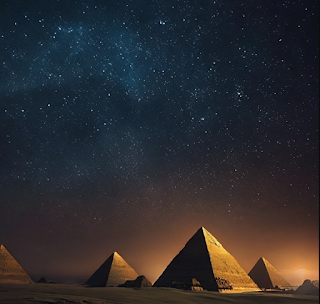Search Blog
Hit enter to search or ESC to close
Trending Now
Shabbos HaGadol - The Hearts of the Fathers and the Sons
- Get link
- X
- Other Apps
Showing posts from January, 2024
Posts
Parshas Bo - Time is the Answer
From the very beginning G-d had warned Moshe that Pharaoh would not listen to him. Why then did Moshe have to trek to the Egyptian tyrant, warn him of the plagues, only to be dismissed, over and over again? At the beginning of Parshas Bo, G-d finally tells Moshe the reason. "So that you may tell your children and grandchildren..." Throughout this whole process, Moshe and the Jews had been rooted in the present while G-d was speaking of the future. Here, G-d pulls back the curtain and reveals that the struggles of the present will inform and shape the Jews people throughout time. Often in our struggles, we feel stuck in the moment. The answer in Parshas Bo is to think of the future. Time is a theme in Parshas Bo. The plague of the firstborn is visited at midnight. It is I believe the first explicit mention of time in the Torah, not in terms of broad measures like day and night, but a very specific measure of time. Likewise the first Mitzvah, that of the new moon and the cal...
- Get link
- X
- Other Apps
Parshas Vaera - Bo - Were the Jews Affected by the Plagues?
Were the Jews affected by the plagues that struck Egypt? It seems like an absurd question. Weren't the plagues there to force the Egyptians to free the Jews? And yet only in the plague of the swarm of wild animals does G-d for the first time make a point that the plague will distinguish between the Egyptians and the Jews. This event is treated as extraordinary and is described as a "sign" implying that this had not happened before. Going forward, some of the plagues contain this distinction while others make no mention of it. The swarm of wild animals and the disease that strikes the animals, Orov and Dever, both distinguish between Jews and Egyptians, as does Barad, the wave of burning hail, along with darkness, Hosech, and the death of the first born, but there is no mention of this during, for example, the plague of soot that leaves of blisters. Why is there a distinction with some plagues but not others? The pattern seems to be that those plagues that were ...
- Get link
- X
- Other Apps
Parshas Vaera - The Order of the Plagues
We all know the names of the ten plagues that struck Egypt. And some of us may even remember the order that they took place in. But is there any reason for the particular order? The plagues do become somewhat more devastating with time, but not entirely. Take the plague of darkness, which was traumatic, but not truly damaging, as opposed to the invasion of wild beasts. There is however an order of meaning to the order of plagues. The plagues don't necessarily move forward in degrees of devastation, but in degrees of altitude. From the first to the ninth plague, they begin at the very bottom, in the river, below the surface of the earth, and ascend to the sky, while the final plagues leading up to the end, hail, locusts, and darkness, emerge from the heavens. In between them, the plagues slowly ascend, rising from the Nile, blood and frogs, up to the third plague, vermin, which arise when the dust of the earth is struck. The fourth and fifth plagues involve the animals...
- Get link
- X
- Other Apps
Parshas Shemos/Vaera - The Birth of a New Religion and the Age of Miracles
(You can listen a version of this thought on my new Human Parsha podcast.) At the beginning of Parshas Vaera, G-d informs Moshe that the revelation of the name 'Hashem' is a unique one that had not been truly revealed to any previous generation including that of Abraham, Isaac and Jacob. When Moshe had asked what name of G-d should he tell the Jews sent him, the 'Name' was given for the first time. Without getting too esoteric, what does the revelation of the 'Name' Hashem mean? The name Hashem until now had been used exclusively by members of Avraham's immediate family. Outsiders however use the name 'Elokim', 'Adon' or other names meaning G-d. Must as in contemporary times a broad range of peoples use a term denoting a single Creator of the universe, but do not necessarily share values or beliefs, so too the people of that time had the concept of a Creator. Indeed, Abraham at one point encounters a 'priest' who serves a High Ho...
- Get link
- X
- Other Apps







